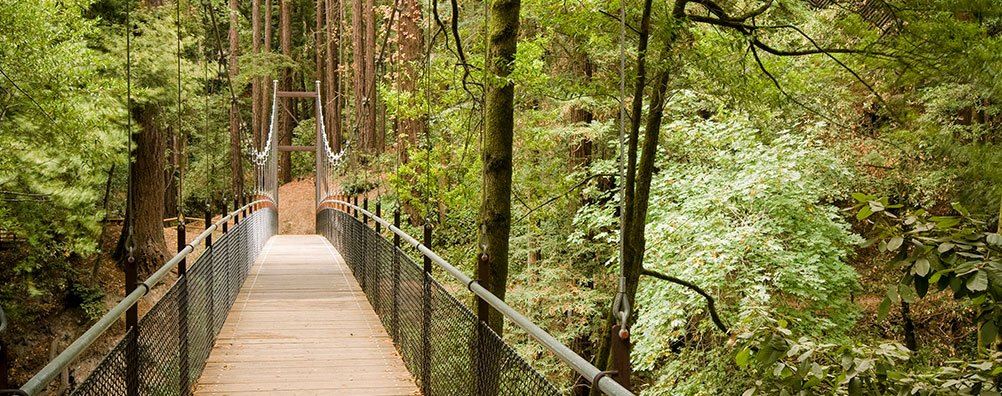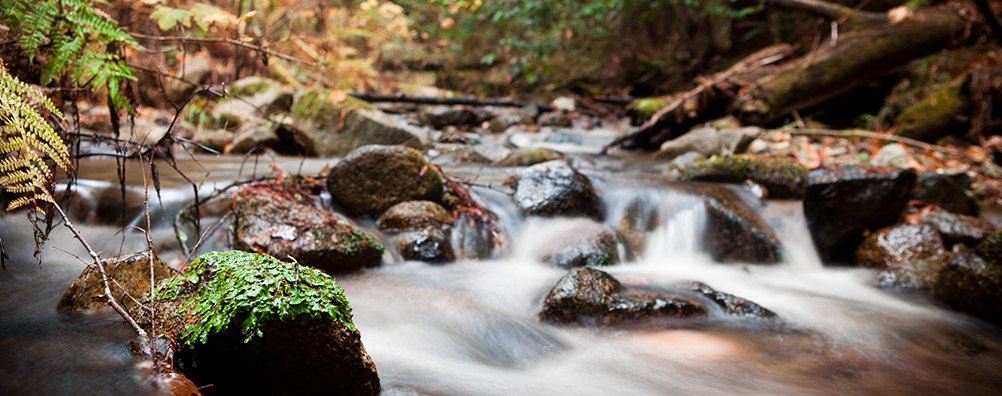Think back to a time that you experienced a deep sense of awe in nature. Recall a time you met God in the outdoors. Do you remember the first time you felt your part was so small in the grand scheme of the universe, yet realized you have a purpose and you are loved?

Hundreds of schools across the states pack up their fifth and sixth graders and drive them to science camp for a week. Students learn about local wildlife, plant life, and stewardship; they learn about respect, how to work as a team, that they are braver than they think they are. They learn that they are special.
Christian camps that program outdoor science schools not only have the opportunity to help students experience moments of awe in nature and provide an open space for questions about the earth and the universe, they have the chance to pour Christ’s love into students without verbally mentioning His name.
Before working at Mount Hermon, I didn’t realize the great capacity camp actually has to reach people. Aside from summer camp regulars and year-round retreat groups, science camps are reaching a different demographic of students—children that might otherwise never step foot inside a church camp, or any camp for that matter, except for a school field trip.
I am now in my second year of teaching outdoor science and have experienced dozens of wonderful weeks of students, but one of the students that stands out most in my mind is a boy I taught within my first month at Mount Hermon Outdoor Science School. Eduardo* was a quiet sixth grader who didn’t seem to have many friends. His weight caused him to lag behind during hikes, but I never heard him complain. He paid attention in class but had a way of disappearing into the crowd in large group settings.
 One morning at the creek while all my other students splashed in the water or skipped rocks or hunted for banana slugs, Eduardo knelt by himself in the gravel. When I asked what he was looking at, he showed me some unique pebbles he had gathered. When I praised his find many times over, his shy smile proved his pride. From that moment on, he was my buddy. We didn’t talk much; he just liked to walk near me and show me what he discovered. Every time I encouraged his finds and told him he was a good scientist, he beamed.
One morning at the creek while all my other students splashed in the water or skipped rocks or hunted for banana slugs, Eduardo knelt by himself in the gravel. When I asked what he was looking at, he showed me some unique pebbles he had gathered. When I praised his find many times over, his shy smile proved his pride. From that moment on, he was my buddy. We didn’t talk much; he just liked to walk near me and show me what he discovered. Every time I encouraged his finds and told him he was a good scientist, he beamed.
That week at camp, Eduardo and his classmates saw a wild deer for the first time. A hush fell over the chatty sixth graders as they snapped photos with their yellow Kodak cameras. I was immediately humbled.

The last day of camp as the students hugged me goodbye, some with smiles, some through tears, I glanced over and saw Eduardo standing by himself trying to shield the tears running down his full cheeks. When I told him goodbye and that I was so glad he had been a part of science camp that week, he handed me a rubber bracelet that read the word confidence. I wiped away my own tears at his humble offering and at the fact that these students had experienced something that week that some of them never had before and perhaps never would again. I didn’t know what Eduardo’s home life was like or what he was going back to once he disappeared onto the school bus with dozens of other sixth graders, but I knew that that particular week at camp he knew he was loved. He was told he was smart; he was showed he was valued. I hope he never forgets that.
Week after week, students jump off their big yellow school buses in utter excitement about camp—a pool, yummy food, scampering squirrels, staying in a cabin with friends, the fact that they’re on a week-long field trip. At the end of the week, students climb back onto those buses having experienced transformation. In some students, the transformation is very clear; in others, we trust that seeds have been planted and that the Gardener will yield a harvest in His time.
Before working at an outdoor science school, I had no idea of the importance of this kind of program within camps and camp ministry. I am now a huge proponent of it. It provides an incredible opportunity for students like Eduardo and thousands of others who attend science camp each year to experience a week of Christ’s love through the outdoors and to leave camp knowing they are special.
Do you remember the first time you felt your part was so small in the grand scheme of the universe, yet realized you have a purpose and you are loved? I do. And I hope I never forget that.
*The name has been changed to protect the identity of the student.
 Genée Morrison and her husband Zane live in Santa Cruz, CA, where they both enjoy teaching at Mount Hermon Outdoor Science School. Although this is their second year in CA, they have deep roots in KY where they spent many summers at Aldersgate UM Camp and Retreat Center, the place their passion for camp ministry was fostered. In her free time Genée enjoys hiking, climbing at the rock gym, and experimenting in the kitchen. Her most recent experiments include eggplant gravy and pistachio pancakes. Genée also serves on the UMCRM Association Board of Directors.
Genée Morrison and her husband Zane live in Santa Cruz, CA, where they both enjoy teaching at Mount Hermon Outdoor Science School. Although this is their second year in CA, they have deep roots in KY where they spent many summers at Aldersgate UM Camp and Retreat Center, the place their passion for camp ministry was fostered. In her free time Genée enjoys hiking, climbing at the rock gym, and experimenting in the kitchen. Her most recent experiments include eggplant gravy and pistachio pancakes. Genée also serves on the UMCRM Association Board of Directors.

